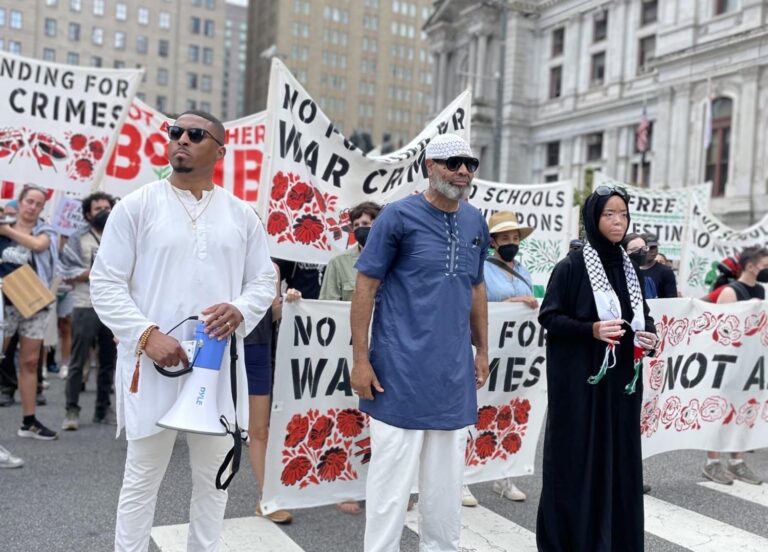 CAIR’s report “Legislating Fear: Islamophobia and its Impact in the United States” is now available. The report’s key findings are the following:
CAIR’s report “Legislating Fear: Islamophobia and its Impact in the United States” is now available. The report’s key findings are the following:
Finding 1: Subject matter experts perceive a small, but highly welcome, decline in Islamophobia in America during the period covered by this report. In 2012, CAIR rates Islamophobia as a 5.9 on a scale of one to 10, with one representing an America free of Islamophobia and 10 being the worst possible situation for Muslims. In 2010, CAIR rated the state of Islamophobia in America as a 6.4.
- Context: The reduction makes particular sense given that the 2010 rating interviews were conducted in September and October of 2010. This period was the height of the national controversy over Park 51, aka “the Ground Zero Mosque.” The controversy’s proximity to the 2010 mid-term election made it a campaign issue. It was also right at the time of the planned burning of Qurans by Florida Pastor Terry Jones. This period in 2010 can be seen as the Islamophobia network’s greatest penetration into mainstream discourse to date.
Finding 2: The U.S.-based Islamophobia network’s inner core is currently comprised of at least 37 groups whose primary purpose is to promote prejudice against or hatred of Islam and Muslims. An additional 32 groups whose primary purpose does not appear to include promoting prejudice against or hatred of Islam and Muslims but whose work regularly demonstrates or supports Islamophobic themes make up the network’s outer core.
Finding 3: The inner core of the U.S.-based Islamophobia network enjoyed access to at least $119,662,719 in total revenue between 2008 and 2011. Groups in the inner core are often tightly linked. Key players in the network benefitted from large salaries as they encouraged the American public to fear Islam.
Finding 4: In 2011 and 2012, 78 bills or amendments designed to vilify Islamic religious practices were introduced in the legislatures of 29 states and the U.S. Congress. Sixty-two of these bills contained language that was extracted from David Yerushalmi’s American Laws for American Courts (ALAC) model legislation. While the bias behind the bills is clear, the presence of an actual problem that needed solved was not, even to the legislators introducing the measures. In at least 11 states, mainstream Republican leaders introduced or supported anti-Muslim legislation.
- Update: So far this year, thirty-seven anti-Islam bills were introduced in sixteen states and became law in North Carolina and in Oklahoma. A bill was placed on the ballot for Alabama’s 2014 election-cycle. Oklahoma’s 2010 law was deemed un-Constitutional by a federal court. Between 2011-2013, anti-Islam bills have been introduced in 32 states and the U.S. Congress. Seven states currently have anti-Islam laws on the books.
Finding 5: Anti-Muslim trainers serving law enforcement and military personnel were dealt a significant blow in late 2011. The tone and content of these training sessions reflected the trainers’ personal biases more than any subject matter expertise. Multiple Federal government outlets agreed to review their training on Islam and remove biased or inaccurate materials. The continued use of such trainers by state and local entities deserves further investigation.
Finding 6: There were 51 recorded anti-mosque acts during the period covered by this report, 29 in 2012 and 22 in 2011. Two notable spikes in anti-mosque acts occurred in 2011-2012: May 2011 (7 acts), likely related to the killing of Osama bin Laden and August 2012 (10 acts), probably all in reaction to the massacre of six Sikh worshippers by a white supremacist in Oak Creek, Wis.
- Context: In June 2010, CAIR published “CAIR: Who we are,” a review of 1,999 CAIR press releases and action alerts spanning 1994-2008. In that report we noted: “Since 1994, CAIR has detailed at least 64 acts of destruction and defilement of Islamic places of worship–including shootings, vandalism, arson, and bombings.”
Finding 7: Islamophobic rhetoric remains socially acceptable. Research released in 2011 found, “citizens are quite comfortable not only opposing [extending citizenship to legal Muslim immigrants], but also being public about that fact.” A number of mainstream candidates for the Republican presidential nomination used Islamophobic rhetoric. Rep. Peter King (R-N.Y.) held a series of five anti-Muslim congressional hearings, which were subjected to broad spectrum push back but also enjoyed significant support. Rep. Michele Bachmann (R-Minn.) partnered with inner core leader Frank Gaffney to launch a campaign accusing Muslims in public service of infiltrating the government on behalf of the Muslim Brotherhood. This last episode ended up being a very welcome example of public officials supporting Americans of the Islamic faith in a bipartisan manner.





